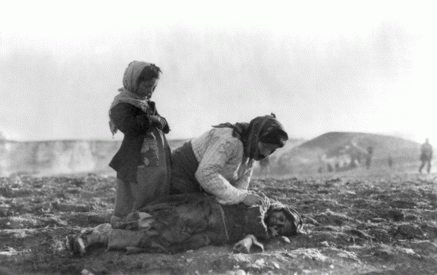On Sunday, Parliamentary elections were held in Greece, and “Syriza” radical left party won the elections. The main mottos were: we are against the policy of reducing social expenditures, which is imposed on us by the European Union, and we are not going to pay the 320 billion debt of Greece. People liked it a lot, and, apparently, the Party enrolled by former communists, Maoists and socialists will get more than 50 percent of the seats in the parliament.
“Syriza” took an active campaign against “Troika”, the very Russian word is used with a hint on Stalinist dictatorship. Under the hated “Troika”, they understand the European Union, the International Monetary Fund and the European Central Bank. This campaign received warm response among respective political parties in Italy, Spain and Portugal. “Troika’s” (actually, of course, above all Germany’s) argument is as follows: you have run into debts, because you work less than you spend, be kind enough to reduce your expenditures so that we continue to lend to you, why on the account of well-working Germany, the Greek pensioner should live in the poor-operating economy just as good as the German pensioner. I would not say that there is no logic here.
If we go beyond grandiloquent words about “social justice and dignity”, which was dissipated by “Syriza” political party during the pre-election period, then it should be noted that this logic was introduced still by apostle Paul, the one who is unwilling to work shall not eat. In the beginning of the 17th century, British Captain John Smith was formulating this principle for his countrymen who were founding new settlements in America. “Thirty or forty honest and hardworking people’s work should not be spent on 150 idle parasites.” Actually, “the one who is unwilling to work shall not eat” principle is incomplete because it may imply that you are working only for eating, and if you’re lucky and have something to eat, then you are exempted from the obligation to work.
Actually, the culture of parasitism arises in the very place where there is no other motive to work but “eating”.
Read also
In this sense, the following Buddhist parable is very instructive: an 80-year-old master is working with his pupils. The disciples feel sorry for him and want to facilitate his life and hid the master’s instruments. That day, the master sits at a table, but does not eat a crumb of bread. The next day, he does the same. On the third day, the disciples return the instruments to him, and he works and eats with everyone. He was not eating the previous days not because he did not have the chance, but because he was sure inside that he doesn’t deserve it.
Good things are created by those, for whom work is a matter of honor and a sacred duty.
ARAM ABRAHAMYAN



























































